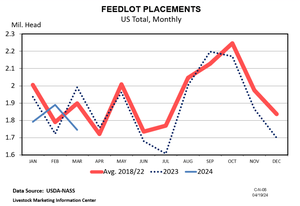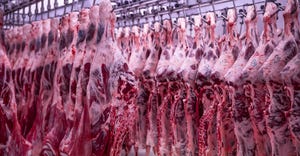“Although we support the need to advance renewable and alternative sources of energy, we strongly believe it is time that the mature corn-based ethanol industry operates on a level playing field with other commodities that rely on corn as their
July 19, 2010

“Although we support the need to advance renewable and alternative sources of energy, we strongly believe it is time that the mature corn-based ethanol industry operates on a level playing field with other commodities that rely on corn as their major input. Favoring one segment of agriculture at the expense of another does not benefit agriculture as a whole or the consumers that ultimately purchase our products.”
That’s what the nation’s largest livestock and poultry trade associations (including the National Cattlemen’s Beef Association and American Meat Institute) said in a letter sent to Senate leadership Friday, They asked Senate leadership to allow a 30-year-old tax credit and a protective tariff for ethanol to expire as scheduled at the end of the year. The Senate Finance Committee now is considering whether or not to extend the ethanol blender’s credit and the tariff on imported ethanol.
The groups noted their concerns over the negative economic effects on animal agriculture stemming from the Volumetric Ethanol Excise Tax Credit (VEETC) and the import tariff on foreign ethanol. “The blender’s tax credit, coupled with the import tariff on foreign ethanol, has distorted the corn market, increased the cost of feeding animals, and squeezed production margins, resulting in job losses and bankruptcies in rural communities across America,” they say.
According to the groups, the cattle-feeding sector of the beef industry lost a record $7 billion in equity from December 2007 to February 2010 because of high feed costs and economic factors that negatively affected beef demand.
Total losses for the pork industry amounted to nearly $6 billion, and average farrow-to-finish operations lost nearly $23 for each animal marketed from October 2007 through February 2010. That was despite near-record hog prices in 2008. The cause of the losses, say the groups, was higher production costs driven primarily by higher corn and soybean prices.
The broiler industry experienced a cumulative additional cost of nearly $15 billion, as of April 2010, since corn prices began their rise in the fall of 2006.
The groups pointed out that a September 2008 report by the Congressional Research Service (CRS) stated the dramatic increase in livestock production costs were attributed to higher costs for feed. According to the CRS report, “…the main driver was feed, which may account for 60% to 70% of total livestock production costs in any given year.” Between 2005 and 2008, corn prices quadrupled, reaching a record high of more than $8/bu., a pattern that is unsustainable for our industries, the groups said.
“There is no safety net to protect against the volatility in the commodity markets, forcing all industries to pay higher prices for input costs due to the fluctuations in the corn market,” the groups wrote. “While there has been some recent relief in corn prices, current market prices are still 50% higher relative to pre-RFS (Renewable Fuels Standard) conditions.”
The letter noted the Congressional Budget Office (CBO) report released last week, titled "Using Bio-fuel Tax Credits to Achieve Energy and Environmental Policy Goals." That report (see "Ethanol Costs More Than It Returns") finds that producers of ethanol made from corn or similar feedstocks receive 73¢ to provide an amount of bio-fuel with the energy equivalent to that in 1 gal. of gasoline. The report also stated that the cost to taxpayers of using ethanol to reduce gasoline consumption by one gallon was $1.78.
For a copy of the letter, click here.
You May Also Like



